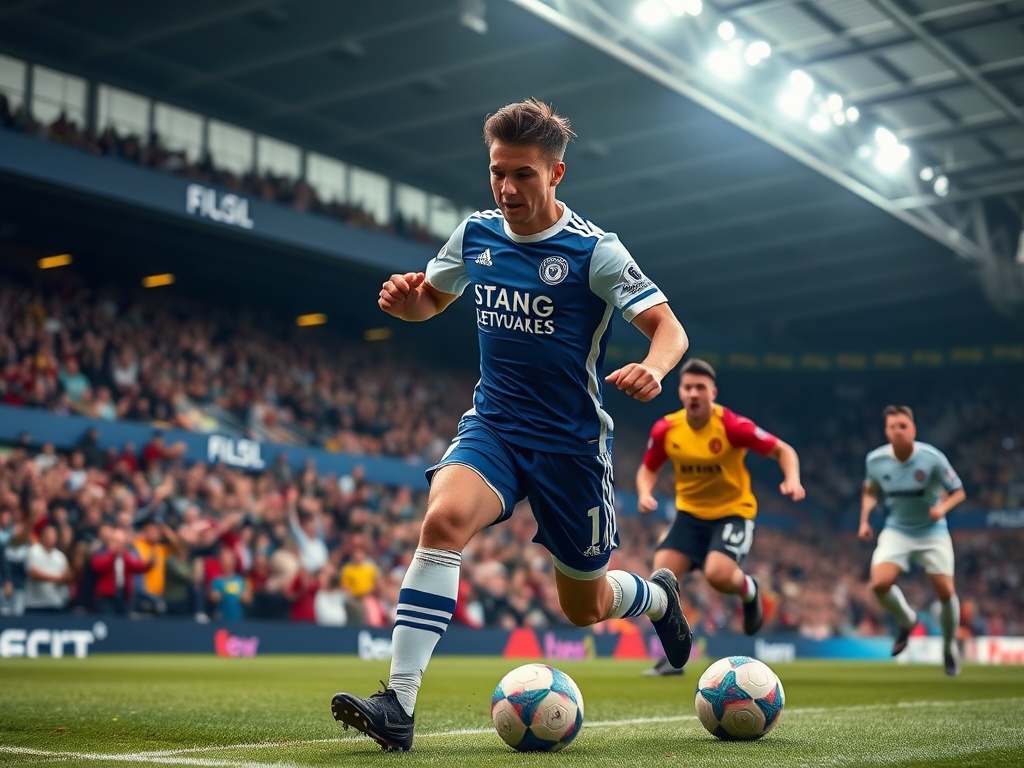The Journey of Chris Wood: From Timid Talent to Premier League Prodigy

Much like Nottingham Forest’s prolific striker Chris Wood, Glenn Murray knows a thing or two about the hard work and dedication required to reach the Premier League. Murray understands the intoxicating thrill of being the first-choice forward for your manager and the sacrifices necessary to continue playing at the highest level well into your mid-30s. Remarkably, Murray also shares a history with Wood, having played alongside him during their time at Brighton over a decade ago—an eternity in the world of football.
When Wood first joined Brighton on loan from West Brom in November 2010, he was just an 18-year-old, while Murray was already a seasoned 27-year-old. Having worked his way up from the lower leagues, Murray recognized Wood as a rough diamond in need of refinement. He saw a young man with immense potential but also noted his initial shyness and the need for guidance in utilizing his physical attributes.
“Well, Chris was just a baby, but he was massive!” Murray reflects with a chuckle in an interview with The i Paper. “He has always had that physical presence. He was a genuinely nice kid. I’m not particularly tall or strong myself, but I learned to use my body cleverly throughout my career. Chris, on the other hand, was just enormous. He seemed a bit soft, not quite aware of how to assert himself on the pitch. I would tell him, ‘With your size and attributes, you could be bullying defenders! I’d love to have your stature because people would bounce off me!’ I encouraged him to engage more, to realize that no one could handle him if he played to his strengths. He started to grasp it, but at that age, he was understandably timid.”
Having concluded his own career with Nottingham Forest in 2021, Murray has remained in contact with Wood and often reminisces about their mutual experiences at Brighton, where they played pivotal roles in securing the League One title during the 2010-11 season. Now, as they both observe the game from different perspectives, Murray sees a transformed Wood—a confident striker leading Nottingham Forest’s charge for Champions League football.
This season, Wood has netted 18 goals in the Premier League, marking his most prolific campaign in the top tier with 13 matches still to play. This impressive tally places him ahead of Alexander Isak as they head into an anticipated clash at St James’ Park. Although Wood and Isak briefly crossed paths at Newcastle, their on-field time together was limited due to injuries and Wood’s subsequent loan move to Forest.
Despite a hamstring injury that curtailed his season, Nottingham Forest made Wood’s move permanent in the summer of 2023, a deal that has proven to be a wise investment at £15 million. This transfer has been mutually beneficial, allowing Wood to thrive as Forest’s undisputed main striker while providing his teammates with a significant aerial target—something Murray likens to the days of Rickie Lambert at Southampton.
“It’s no surprise to see Wood in such fine form,” Murray comments. “Much like myself, he has developed into a Premier League striker who feels at home at that level. When chances arise, he has the ability to finish them, and most importantly, he believes in himself now. The players around him have faith in him as well, which takes time to cultivate. The setup at Forest plays directly to his strengths. He reminds me of how Southampton utilized Lambert; they wouldn’t just play the ball down the channel, but they would hit those diagonals that he thrived on.”
Murray notes how Wood has become a platform for wingers like Anthony Elanga and Callum Hudson-Odoi to launch their attacks, with their first instinct being to find him in the box.
“Saying Wood is taking his chances is an understatement. He is outpacing his expected goals (xG) more than any other player in the Premier League this season, boasting an impressive xG of 10.37 compared to his 18 goals. He has taken only 46 shots, achieving a remarkable conversion rate of 39 percent. For context, Isak has scored 17 goals from 65 shots, which gives him a conversion rate of 26 percent, while Erling Haaland has 19 goals from 94 shots, translating to just 20 percent.”
Wood is undoubtedly enjoying the form of his life, on a hot streak where scoring becomes “second nature.” Murray highlights this confidence, noting that Wood’s recent hat-trick against Brighton is a testament to his current flow—he seems to be in the right place at the right time, a skill that develops over time.
What is even more remarkable is that Wood, at the age of 33, is finding his rhythm in his eighth consecutive season in the Premier League. He is on track to surpass his best scoring record of 27 goals in the Championship while playing for Leeds during the 2016-17 season. If he continues at this pace, he could very well exceed that mark, proving that reaching one’s mid-30s doesn’t signify the end of a career but rather a phase where players become acutely aware of their capabilities and can adjust their game accordingly.
Murray can relate to this sentiment. His most successful season in the Premier League came when he was 35, where he scored 13 goals to help Brighton secure their top-flight status. He also topped the scoring charts for the Seagulls during their inaugural Premier League season, emphasizing the importance of maintaining fitness and longevity in the sport.
“I was fortunate to have a robust body. I entered the Premier League at an age where I had a solid understanding of my physical limits,” Murray recalls. “I looked up to players like Bruno Saltor, who was a few years my senior. I observed how he took care of his body, both on and off the field. I learned a lot from him, as he was a direct example of how to extend a career.”
Murray was proactive in seeking methods to enhance his performance, exploring ice baths, salt baths, saunas, massages, and even dry needling—a treatment some players are skeptical about, but one he was open to trying.
“As I aged, I pushed my body harder. It’s an internal battle. If a 21-year-old outpaces you at 34, it makes you question whether you’re slowing down compared to when you were 29. You find yourself in a constant mental dialogue as an older player,” he reflects. “In the earlier parts of my career, I was somewhat on auto-pilot, not fully appreciating the opportunity and privilege of being a professional footballer. However, as I got older and became a parent, I learned to cherish those moments—like scoring a goal at iconic stadiums such as Anfield or Old Trafford. You soak it all in.”
